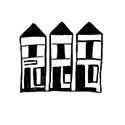 Did you know that both the Residential Tenancies Act (RTA) and Condominium Property Act (CPA) apply to condominium rentals? As a landlord and owner of a condominium unit, you must be familiar with your responsibilities under both pieces of legislation. In Alberta, the RTA is the law that applies to most landlord and tenant situations. It outlines specific rules that both landlords and tenants must follow. The CPA contains additional rules that apply to the rental of condominiums. Here are six key things you need to know before you rent out your unit.
Did you know that both the Residential Tenancies Act (RTA) and Condominium Property Act (CPA) apply to condominium rentals? As a landlord and owner of a condominium unit, you must be familiar with your responsibilities under both pieces of legislation. In Alberta, the RTA is the law that applies to most landlord and tenant situations. It outlines specific rules that both landlords and tenants must follow. The CPA contains additional rules that apply to the rental of condominiums. Here are six key things you need to know before you rent out your unit.
Fact #1: You must inform your condominium corporation
If you have found a tenant and are ready to rent your unit, you must provide the following information to your condominium corporation, in writing:
- your intention to rent out your unit;
- an address where you can be personally served with documents; and
- how much rent you will be charging
Within 20 days of the tenancy starting, you must give your condominium corporation written notice of the name(s) of the tenant(s).
If you stop renting your unit, you must provide notice to your condominium corporation within 20 days of the tenancy ending.
Fact #2: The condominium corporation can ask you for a security deposit
If you are renting your unit, the condominium corporation has the right to ask you for a security deposit to cover any damage that may be caused by your tenant to the common property. The security deposit can be a maximum of one month’s rent. Note: this is not the same as the security deposit you can ask for from your tenant!
Fact #3: Your tenant’s security deposit cannot be used to pay the condominium corporation’s security deposit
As a landlord and owner of a condominium unit, you must be familiar with your responsibilities under both pieces of legislation.You can ask your tenant for a security deposit but you cannot use this money to pay the condominium corporation’s security deposit. You must put the tenant’s security deposit money into a trust account within two banking days of receiving it and keep records of the security deposit for at least three years. A security deposit cannot be more than what you are charging for one month’s rent. For more information about security deposits, visit our Laws for Landlords and Tenants in Alberta website: www.landlordandtenant.org
Fact #4: You can only deduct money from a security deposit for damage if you have completed move-in and move-out inspection reports
Under the RTA, you must complete a written property inspection within one week of a tenant moving in and out of your unit. Once an inspection is completed, you must immediately give the tenant a copy of the written inspection report. As best practice, take photos at both inspections in case there is a dispute in the future. You must keep copies of the inspection reports for at least three years after a tenancy ends. If the inspection reports are not completed, you will not be entitled to take money from the security deposit to cover damage to the unit.
Fact #5: Tenants have to follow your condo bylaws
Tenants are required to follow the condominium’s bylaws during their tenancy and they should have access to a copy of the bylaws. As a responsible landlord, you should familiarize yourself with the bylaws so that you can properly advise the tenant about the condominium’s rules. You should also ensure that the lease agreement accurately reflects the bylaws.
See: Renting Your Condo
FAQ – I’ve heard that condominium boards can evict tenants. Is that true?
Fact #6: Unpaid condo contributions can be taken from your tenant’s rent
The lease should clearly state whether or not your tenant is responsible for paying the condominium contributions (also known as condo fees). You can get into serious trouble if your contributions are not paid. If you are renting out your unit and condominium contributions go unpaid, the condominium corporation can require your tenant to pay rent to the corporation instead of to you to cover the unpaid contributions.
To learn more about renting out your condominium, see Renting Your Condo.
![]() This column was produced with the generous support of the Alberta Real Estate Foundation.
This column was produced with the generous support of the Alberta Real Estate Foundation.

